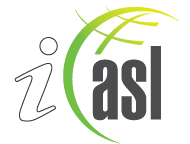

|
|
Peer Assessment Resources – the GiggleIT Project
Peer assessment is a useful part of the editing process because it’s very difficult to see our own typographical errors.
Coach your students in ways to give useful feedback as peer editors, rather than just pointing out spelling errors.
Here are some peer assessment questions that you can adapt to suit your students’ need and the criteria of their projects.
What is peer assessment? For peer assessment, you evaluate a classmate’s work and give useful feedback, rather than the teacher doing it.
What will I have to do? You’ll compare your classmate’s writing with criteria for the assignment and give helpful suggestions so they can continue improving their work. For instance, it’s hard to see your own spelling errors. Remember to be kind as everyone is working at their own pace on their writing.
Help! I don’t know how to give good feedback! Ask your teacher or team members for help. Your class might start a list of useful feedback words and polite ways to critique someone’s work. It’s much more helpful to tell a writer “The third line of this poem doesn’t fit the rhyme pattern” than to say “this poem doesn’t rhyme.”
Jokes – assessment questions
What seems funny to one person might not be hilarious to someone else, but all jokes should be understandable to most people in your intended audience.
- Is the joke funny to you?
- Will it be funny to kids older or younger than you?
- Is the joke well-written?
- Not too long
- Not so predictable that you guess the punchline halfway through the joke
- Is the joke clever / new / original?
- If everyone in your class has already heard this joke, maybe your audience has also
- Does presentation affect the joke?
- Does it need to be heard to be funny?
- Is it funny only when you can see it written down?
Poetry – assessment questions
Poetry has many forms, such as free verse, shape poems and limericks. Each form has its own rules, so be sure that you are assessing your classmate’s poem based on the correct rules!
- Does this poem look like the example for its type?
- If rhyming, do the rhymes follow the correct pattern for its type?
- Do the verbs show action, image, or emotion well?
- How does the poem make you feel? Does that emotion match the poem’s title?
Short stories – assessment questions
Short stories have a limited number of characters and focus on a specific situation, idea or event without excessive descriptions.
- Can you find the beginning, middle, and conclusion of the short story?
- Is it easy to understand?
- Does the short story use clear language instead of long, rambling sentences?
- Is it too short (100-200 words) or too long (over 500 words)?
Personal anecdotes – assessment questions
Different than short stories, personal anecdotes tell about your family, friends, or yourself, describing one event or experience that happened to you or someone you know.
- Does your classmate’s personal anecdote have a beginning, middle, and end?
- Does it tell just one event?
- Is it easy to understand?
- Does their personal anecdote use clear language instead of long, rambling sentences?
- Is it too long (over 500 words)?
Culturalized Stories – assessment questions
Rewriting a well-known fairy tale or story to fit your own culture or location isn’t simple, but can create a very fun experience for your readers! Maybe you have read Cinderella stories from different countries like Mufaro’s Beautiful Daughters or The Rough-Face Girl.
- Do you recognize the original story?
- Does the culturalized story follow the storyline and/or format of the original?
- Does it keep the original moral of the story?
- Does it accurately show your culture or location through names, foods, events?
- Is the culturalized story easy to understand?
- Does it use clear language instead of long, rambling sentences?
Fractured/modernized fairy tales – assessment questions
Taking a favorite fairy tale and changing things around can be lots of fun. Your classmates might bring it into modern times or use a different point of view, like The True Story of the Three Little Pigs, by Jon Sciezka.
- Do you recognize the original story?
- Does the fractured fairy tale follow most of the storyline and/or format of the original?
- Are the changes in names or actions consistent?
- Is the modernized/fractured fairy tale easy to understand?
- Does it use clear language instead of long, rambling sentences?
-
© International Association of School Librarianship
